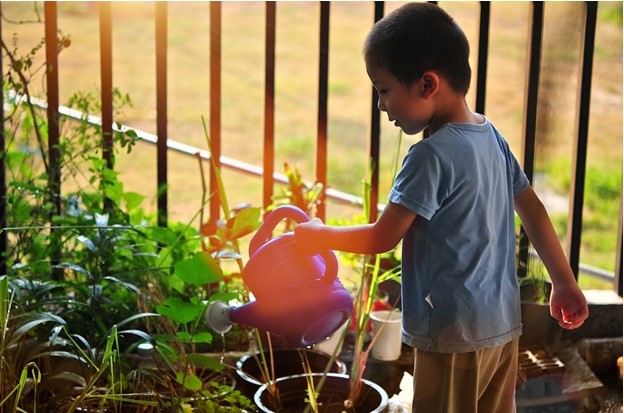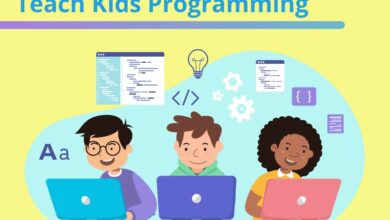How to develop a harmonious and creative personality?

Table of Content
Every day we are faced with the task of developing a harmonious and creative personality. Sometimes I get the feeling that I am a fairy who needs to come up with, invent every day, something new – with which I can surprise my audience today. For children aged 3-4 years, the period begins – they can do a lot, but most importantly – they seek to learn as much as possible. It is quite difficult for a child to go to school, he is regularly distracted, and cannot keep his attention for a long time. You should consider an early learning center for your child to learn better.
How to develop an interest?
Interest in children can develop a harmonious and creative personality carried out with the help of new and bright objects. One of the open classes took place. However, there was concern on my part that this interest could both quickly emerge and the abyss. The main task was that in the middle of the lesson, no one would turn in the other direction and say that he was not interested.
- Items used in work should not be used in everyday life. This is necessary so that they do not lose interest in these subjects.
- During operation, there should not be any foreign objects on the table, and all unnecessary should be removed from the field of view of children. This is an important condition to keep their attention in the right direction. Therefore, I decided at least once a month to conduct the lesson not at the tables, but near the blackboard, so that the guys at least for a short time would feel that they are little artists, near the large canvas that they create together.
- Do not exaggerate the time working with children. The lesson should be short and simple. This is necessary to accustom the baby to complete the work begun.
Classes for children under five years old should be held exclusively in the form of a game. This age already allows the child to come up with stories and fantasize about this topic.
Secrets of the development of logical thinking in preschoolers
Since logical thinking is not given from birth, naturally, it needs to be developed. And, best of all, to do this at preschool age, because up to 6 years certain logical thinking is already formed in a person.
Why develop logical thinking in children?
Logical thinking is one of the necessary conditions for the successful education of children in school. If a child has this skill well developed, then it will be easier for him not only to learn but also to classify, analyze, compare, generalize and perform other mental operations.
And also, without any problems to solve any tasks, it is easier to overcome difficulties and move forward with confidence.
How to develop logical thinking?
From time to time, try to make logical tasks and riddles for children, solve puzzles together, find differences in pictures and objects. In your free time, try to complete tasks with your child that require mental work and thinking. Also, it will be very useful to teach the child to play chess, and playing together will be even more interesting and more fun.
Teach your children to express their opinions and prove their point of view. Always give them that opportunity. This very useful skill is useful to the child in adulthood.
To better develop logical thinking, you can play a variety of games. For example, suggest exercises in which the child will need to find an extra word. Let him explain why he made such a choice. You can also give children pictures with images of objects (these can be vegetables, vehicles, professions, animals) and ask them to be organized into groups. And then explain your choice. One of the useful and interesting games is a game in which you need to name a word for a specific task. For example: to name what happens in red and starts on “M” or to name an object that swims (fish, ship), runs (man, wolf), flies (bird, plane).
How to check the child’s psychological readiness for school?
Surely this issue is of interest to many parents whose children will soon become schoolchildren. After all, this factor is one of the most important criteria for children’s readiness for school since this will determine whether the child is ready to adapt to a new environment and successfully enter the first grade.
The first thing that shows your child’s psychological readiness for going to first grade is a positive attitude towards school and a desire to learn. If this is not observed, this suggests that your baby, most likely, is not psychologically ready for such changes in his life.
Also, children older than preschool age should already understand that at school, their type of activity will change from a game to scientific activity. Understanding this should not upset or scare the child, but quite the contrary, even, please. After all, this is a new and interesting step towards his growing up. It cannot but rejoice children.
It is also important that your baby is curious and curious. After all, children should ask a few hundred questions a day, and at least half of them should get answers. And also, future first-graders should be able to work concentratedly at least for a certain specific time. And also, be prepared to accept the requirements of the school and teacher. Understand what they will do there, what their role is in school.
So, if your child understands why he is going to school, he wants and can study, surprises you with his curiosity, this suggests that your baby is already psychologically ready for a new, and so important, step in his life.
If the child does not want to be engaged or that study was a joy
Every caring parent wants to teach their baby as much as possible of all the news. But what if the child does not want to study at home? Despite all the diligent efforts of the parents and a bunch of interesting, colorful games and manuals. How then to give your beloved child the necessary knowledge skills.
It is very important to hear your child what he likes, what he loves, what he prefers.
And so that your children love to engage with you, you just need to follow a few simple rules.
- Start classes only when the baby is full and in a good mood.
- Never scold or punish a child if he does not want to be engaged. So he can forever disappear desire to learn — better transfer classes to another time.
- Instead of telling the baby will be studying, suggest playing with him. After all, all children love games so much, and playing with your beloved parents is even more fun.
- Try to make each lesson fun and interesting. And then your child will ask you to play more and more. Without even knowing that you are teaching him!
- Try to finish classes when the child still wants to play. Then later, he will want to play with you again.
- If the baby is not interested, switch to something else or stop doing it.
- Explain to the child why he needs new knowledge, how he can apply it in life. Then he will understand their importance and value, especially if it is prepared for school.
- After each lesson, be sure to praise the child. Tell me how well done he is and how much he already knows.
Conclusion
And then your baby will understand that dealing with mom and dad is very fun, interesting, and most importantly – useful!




